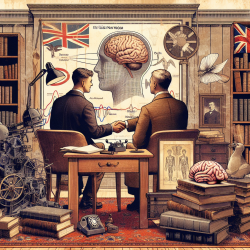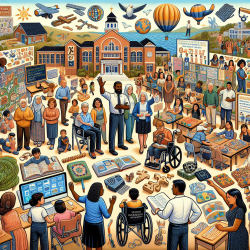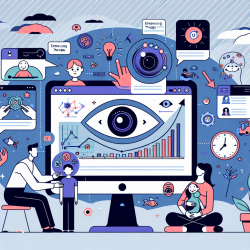The Second World War was a time of immense challenge and transformation, not just for nations but also for the field of mental health. The research article "The Origins of the Anglo-American Research Alliance and the Incidence of Civilian Neuroses in Second World War Britain" by Stephen T. Casper provides a fascinating look into how wartime conditions influenced civilian mental health and how a transatlantic collaboration sought to address these issues.
Understanding Civilian Neuroses During Wartime
The article explores how the relentless air raids over Britain during WWII led to concerns about civilian neuroses. Despite expectations of widespread psychological distress, official reports suggested that air raids were not significantly increasing the incidence of neuroses among civilians. This finding was partly attributed to a societal ethos of resilience and fortitude.
However, this narrative was not universally accepted. American psychiatrists questioned whether British reports were downplaying the true impact of the bombings on civilian mental health. This tension highlights the complex interplay between national narratives and scientific inquiry.
The Anglo-American Research Alliance
The research also delves into the formation of an Anglo-American biomedical research alliance, which played a crucial role in shaping wartime medical practices. This collaboration aimed to share scientific knowledge and coordinate efforts across the Atlantic, despite political and methodological differences.
This alliance is a testament to the power of international cooperation in advancing scientific understanding and addressing global challenges. It underscores the importance of open communication and shared values in overcoming obstacles.
Applying Historical Insights to Modern Therapy Practices
As practitioners today, we can draw valuable lessons from this historical context:
- Cultural Sensitivity: Recognize how cultural narratives can influence perceptions of mental health issues. Be mindful of societal attitudes that may affect your clients' willingness to seek help or discuss their experiences.
- Interdisciplinary Collaboration: Embrace collaboration with professionals from diverse fields to gain a holistic understanding of complex issues. Just as the Anglo-American alliance combined expertise from various disciplines, modern therapists can benefit from interdisciplinary approaches.
- Evidenced-Based Practice: Use historical data and research as a foundation for evidence-based practice. Understanding past methodologies and outcomes can inform current therapeutic strategies.
The Call for Further Research
This historical analysis also invites practitioners to engage in further research. Investigate how past events have shaped current mental health paradigms and explore innovative ways to apply these insights in therapy settings.
The legacy of WWII research on civilian neuroses offers a rich tapestry of knowledge that can enhance our understanding of resilience, trauma, and recovery. By examining these historical contexts, therapists can refine their skills and better support their clients in navigating contemporary challenges.










